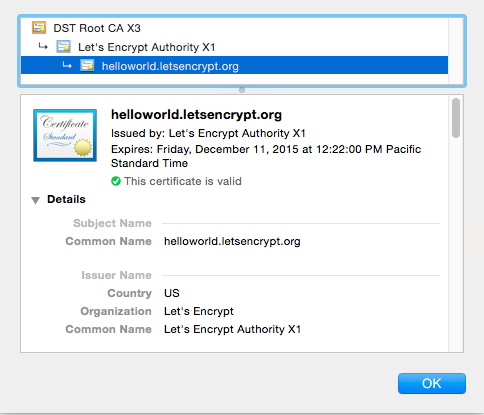Nick Gillespie says “thanks for the mammaries” to Playboy magazine:
Well, it was either really changing things up or going bankrupt for Playboy, the men’s mag that published its first issue way, way back in 1953.
Inside the pages of that first issue, Marilyn Monroe was seen posing with, as she once put it, “nothing on but the radio.” Its circulation peaked at 5.6 million in the mid-1970s and now comes in at maybe 800,000 nowadays. That’s still an enviable number but like a lot of other, older mags (think Time, Newsweek), Playboy is a shadow of its former self in every possible way: financially, journalistically, culturally.
The New York Times reports and the Interwebz weeps that come next March, the nudes are out as part of a thorough redesign of one of the most influential mags in American history. Yes, Playboy helped to mainstream nudity and, more important, start frank conversations about sex in a time of button-down sensibilities. Yes, Playboy photoshopped the hell out of its pneumatic centerfolds and playmates, launching innumerable careers and an even-higher number of eating disorders among women and unrealistic expectations among men.
In many ways a very progressive outlet, Playboy also showcased some of the worst, most-retrograde elements of the patriarchy that slowly and surely lost its power over the 20th century. For all of the nipples and the semi-arty beaver shots, it was far slower than National Geographic to showcase the full range of human diversity when it came to naked ladies, unless your idea of diversity only ranged from the girls of the SEC to the girls of Big Ten. It published a ton of great and famous authors with a capital A and set the standard in post-war America for the Big Interview, sitting down with everyone from Ayn Rand to Timothy Leary to William Shockley to Jimmy Carter (who notoriously admitted lusting “in his heart”) for incredibly extensive and intensive Q&As that simply (and sadly) don’t gone anymore.
The joke was that you’d only read Playboy for the articles … yet the articles were actually quite good for the most part. By the time I saw my first issue of Playboy (October 1972, if I remember correctly [edit: off by a year … it was 1971]), it was already being seen as stodgy and “conservative” compared to more explicit and raunchier competitors.
Update: Megan McArdle contrasts the Playboy Man with his modern-day “successor”, the Pick-Up Artist:
In its heyday among the mod generation, the writing essentially peddled the fantasy of being a more sedentary James Bond: a sophisticated and urbane man about town, drowning in lady friends. The New York Times quotes Hefner’s first editor’s letter, which sketches the demographic he envisioned: “If you’re a man between the ages of 18 and 80, Playboy is meant for you. … We enjoy mixing up cocktails and an hors d’oeuvre or two, putting a little mood music on the phonograph, and inviting in a female acquaintance for a quiet discussion on Picasso, Nietzsche, jazz, sex. …”
Playboy Man was, in short, a connoisseur of the upper-middlebrow au courant, at least enough to carry on an hour or so of really good cocktail party conversation. He liked to give cocktail parties, too, though they might have only one guest. His hi-fi system was the latest, his little black book crammed with the names of willing and attractive females. He was, we might note, the type of person who really doesn’t have a lot of spare time to spend looking at Playboy centerfolds.
[…]
It’s interesting to contrast Playboy Man with the modern incarnation that has taken his place: the Pickup Artist. Both present versions of the same message: follow this code, and you’ll be successful with women. (For some values of the word “successful,” anyway.) But Playboy Man was supposed to achieve this through mastering a certain body of “cool” knowledge, through becoming the sort of person who might impress even those he does not intend to woo. The Playboy fantasy was of being the kind of gent who naturally attracts women because he’s so with it, while the Pickup Artist fantasy is more like a teenager playing a video game: You press the buttons in the right sequence and — yes! — your character unlocks the next level.
Sexual conquest has, in other words, moved down market, as pornography did, first with the introduction of raunchier Playboy competitors, and then in the move to the Internet, where sheer volume trumps production values. Playboy spoke to the moment between two sexual moralities: the age when sex was forbidden, and the age when sex became ubiquitous. In the moment between, the sight of men openly pursuing lots of sex had a sort of glamour, and a status, that it has now entirely lost. I don’t say that the pursuit has stopped. But the charmingly dangerous character of the “wolf” has now been supplanted by an assortment of derisive terms that I cannot repeat here in a family-friendly column. For an adult man to admit that he spends a lot of time thinking about how to score is as gauche now as it was in 1900, though for entirely different reasons.


 Maggie Goldenberger and her fourth- and fifth-grade pals used to amuse themselves by dressing up in weird clothes, doing crazy stuff to their hair, and posing for polaroids holding funny objects and making weird faces. Years later, Goldenberger uploaded some of her favorites to her Myspace and Facebook accounts, which led to Jeff Davis, who she didn’t know, posting it to Reddit, where a Redditor called Plantlife ganked it and captioned it with “GERSBERMS. MAH FRAVRIT BERKS” — and a meme was born.
Maggie Goldenberger and her fourth- and fifth-grade pals used to amuse themselves by dressing up in weird clothes, doing crazy stuff to their hair, and posing for polaroids holding funny objects and making weird faces. Years later, Goldenberger uploaded some of her favorites to her Myspace and Facebook accounts, which led to Jeff Davis, who she didn’t know, posting it to Reddit, where a Redditor called Plantlife ganked it and captioned it with “GERSBERMS. MAH FRAVRIT BERKS” — and a meme was born.

